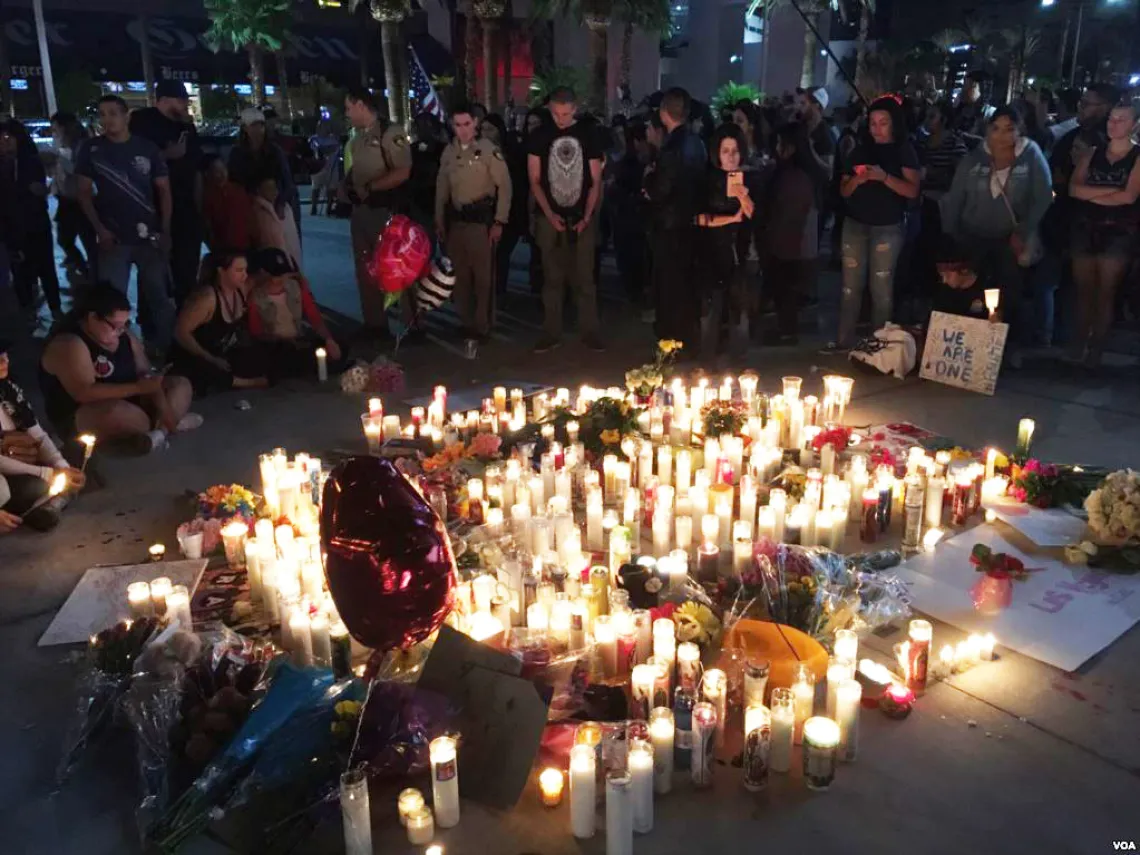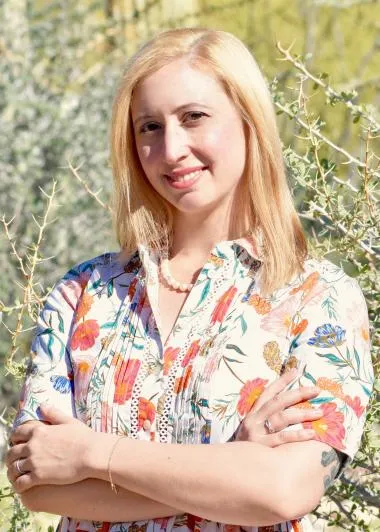Exploring the Effects of Gun Victimization on Political Engagement

Vigil for victims of the Las Vegas Shooting on October 1, 2017.
Photo: C. Mendoza / VOA
University of Arizona sociologist Jennifer Carlson is working to understand the divisiveness in the United States over guns. She has interviewed people who own and carry guns. She has interviewed law enforcement. Now, with a new grant from the National Science Foundation, Carlson will interview people who’ve lost loved ones to gun violence.
Jennifer Carlson, an associate professor in the School of Sociology in the College of Social and Behavioral Sciences, has received a $340,000 NSF grant for her project “Effects of Victimization on Engagement and Expression.”
Research has shown that crime victimhood/survivorship shapes politics – framing grievances, mobilizing political actors, and justifying policy initiatives. Carlson is exploring that relationship, focusing on gun violence.
This project asks, why do some crime victims and survivors mobilize while others do not? For those who do mobilize, why do they embrace the political actions and stances that they do? And with what consequences for their experiences as victims and survivors?
Interviewing Survivors of Gun Violence
Jennifer Carlson’s work examines gun politics, policing and public law enforcement, the politics of race and gender, and violence. Her book on the politics of gun carry, Citizen-Protectors: The Everyday Politics of Guns in an Age of Decline, was published in 2015.

For this NSF-funded study, Carlson will interview gun violence survivors, defined as the family and close friends of those who died by gun violence, to understand how survival has impacted their psychological, social and political lives. Carlson noted that there has not been much research on the long-term effects of surviving gun violence.
“If you look at the data on survivors, more than half of people in the U.S. have either been directly affected by gun violence themselves, or someone close to them has been directly affected,” Carlson said.
Carlson will identify 36 cases of gun violence and interview 5 to 15 survivors per case for approximately 240 interviews. The interviews will be spread across three different categories of gun violence: felonious homicide, justifiable homicide and active shootings.
Carlson is focusing on California and Florida, two states with similar rates of gun violence as well as high profile active shooting and justifiable homicide cases.
“California and Florida are also on opposite ends of the spectrum in terms of the kinds of gun policies they have in place,” Carlson said. “I want to explore how the politics of the state shape the experience of gun violence.”
Carlson is investigating whether different forms of gun violence will impact people’s experiences of trauma and politicization. She will also explore how this relationship might be shaped by race, previous contact with state agencies, and the different gun cultures that exist in California and Florida.
Although crime victimization is correlated with increased political participation, scholars have also shown that contact with the criminal justice system can produce legal cynicism and decreased political engagement.
Carlson is hoping that the study will help survivors as well as members of social service agencies, law enforcement, policy makers and the general public by identifying concrete factors that impact survivor outcomes.
“When we talk about solutions to gun violence, one of the things I’m hoping comes out of this project is actually a broadened imagination of what those solutions can look like,” Carlson said.

